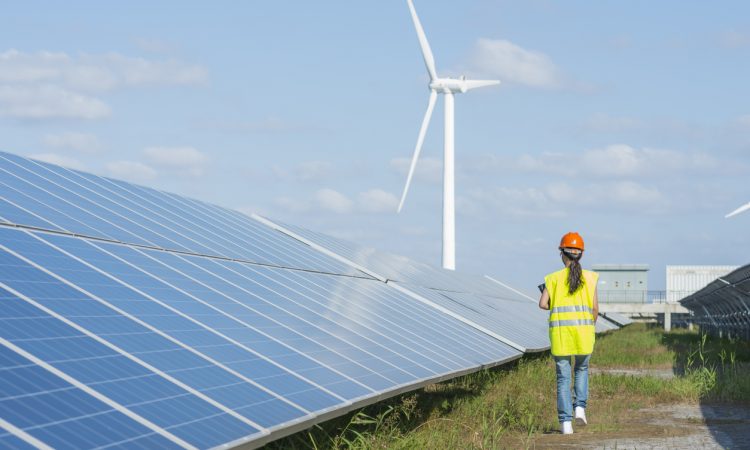“Hope is short-lived unless coupled with a desire for future worlds that are not depressing but instead so enticing that they might lead us to yearn for a new way of being.” – Sarah Ray, A Field Guide to Climate Anxiety (2020)
A read of the headlines today can elicit strong negative emotions. We are in the midst of a Sixth Extinction, one characterized by humanity’s negative impact on our environment. This unprecedented time and the news that accompanies it leaves many of us feeling frustrated, hopeless, afraid and filled with dread.
Our brains are designed to remain stable by pruning unwanted information or refocusing our attention away from distressing events. These processes were adaptive at one time in human history, but today this is not always the case, particularly when dealing with large-scale ideas, events and patterns. Climate psychotherapist Leslie Davenport highlights that fight, flight and freeze responses can lead to burnout, denial and cynicism. Psychoanalyst Anouchka Grose expands on this, arguing that more information and fear can lead people to feel paralyzed without a sense of what to do next. In other words, the climate emergency is difficult for humans to think about because of its scale and dynamism. Proposed solutions are diverse and may create new problems that need to be addressed.
The gap between awareness of climate change as a threat and a sense of how to respond both individually and collectively has been referred to as the “hope gap.” We believe that career development professionals (CDPs) can play a key role in closing the hope gap and helping clients adapt to the realities of the climate emergency.
The common factor between the climate emergency and careers is uncertainty about the future. Media narratives paint bleak pictures of the future of career and climate that creates negative emotions and can leave us feeling overwhelmed and paralyzed about what to do next. Thankfully, career development approaches such as Chaos Theory of Careers, Narrative Career, Career Construction and Planned Happenstance theories use uncertainty and/or self-authorship as a launch point for client empowerment and action.
Interventions such as values clarification, the SparkPath Challenge Cards, 80,000 Hours and a focus on the UN Sustainable Development Goals in careers situate career decision-making within the broader landscape of solving the problems of humankind. Visioning exercises are also important to help clients imagine the world they wish to live in rather than a crisis they are trying to avoid. These types of tools allow CDPs to help clients approach the climate emergency with the more useful and hopeful emotional states of curiosity and creativity.
As CDPs, we already have the tools to help clients break the challenges down into achievable steps and goals for their own career decision-making in the context of finding purpose for a greater good. Here are a few ways we can support clients to connect to work addressing the climate crisis.
Explore career opportunities: The climate emergency is a problem on many fronts and one that demands equally diverse solutions. CDPs can help by reminding clients that these solutions are inclusive of all abilities, interests and aptitudes. ECO Canada’s Environmental Career Profiles index is an effective starting point, highlighting a variety of jobs geared toward the environment. Many assume that a science degree is required to work toward mitigating climate change. While scientists play an important role in research and advocacy, so do environmental lawyers, marketing and communication professionals, event planners and so much more! ECO Canada also produces labour market reports that can empower our clients’ confidence in their decisions.
Connect needs to skills: Another approach is to help clients align their skills, occupational or otherwise, with the climate. The climate emergency demands all the help it will get, and with between one and two million environmental organizations addressing environmental and social justice concerns, there is no shortage of need for organizers, administrators and more to help build a better world. Encourage clients and students to check out Climate Change Connections Network, Goodworks.ca or google environmental organizations to learn about ways of connecting with work that is meaningful to them.
Map out spheres of influence: Focus has been placed on individual consumption choices, also called green consumerism. While our consumption choices certainly matter and using fewer plastic straws creates less waste, it is important for us to also contribute through other levels of organization. In A Field Guide to Climate Anxiety (2020), Sarah Ray encourages us to map out spheres of influence and leverage points where a small shift can create a large change. Examples include personal, family, community, campus, society, cultural and global. As CDPs, we can use our experience helping clients map out personal networks as we do during job search. In doing so, clients can develop an expansive view of who they can connect with around the climate emergency, help expand their sense of agency and appreciate their greater power as citizens, community members and social change agents than simply as consumers.
The challenges of the climate emergency are far-reaching and long-lasting. As career professionals, we can provide an expansive view of careers in climate work informed by accurate information, inclusive of both personal and social spheres as well as flexible in the face of new information. We can reframe fatalistic narratives by accepting we spend most of our careers and ultimately our lives in the grey zones of uncertainty, but that hope inevitably grows and is fuelled by uncertainty. As we have written previously, the hope that is demanded of all of us is an active hope that is accepting of the losses and uncertainty in front of us, but embracing of the potential to create meaningful change in the world ahead.





